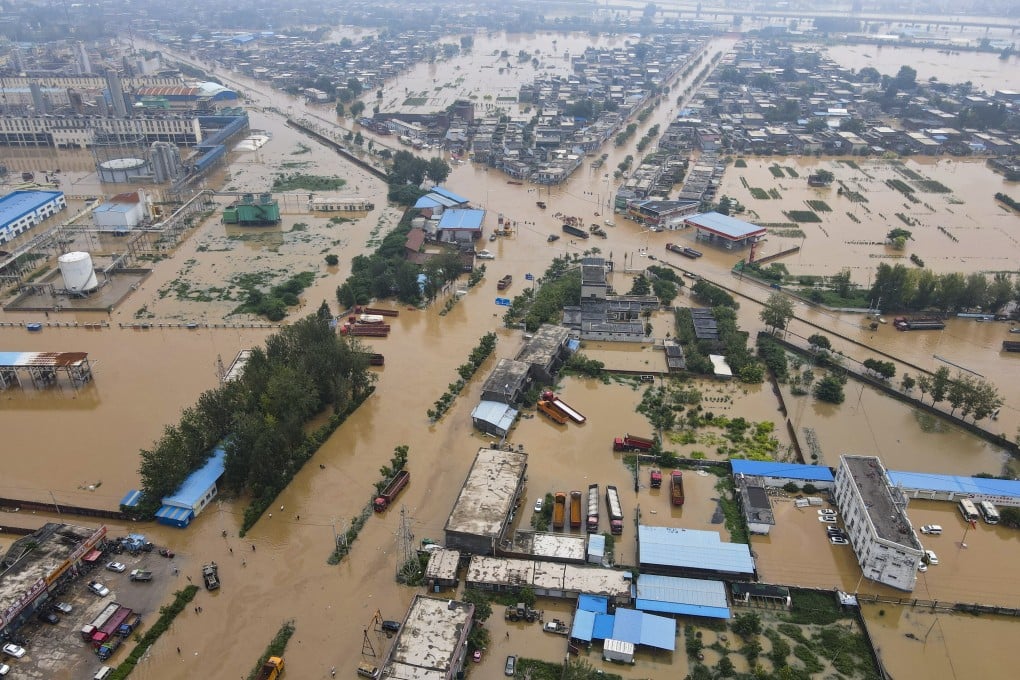Advertisement
China floods: food security, inflation concerns with close to 1 million hectares affected in Henan
- Some 972,100 hectares (2.4 million acres) of crop fields have been affected by the floods in Henan province, raising concerns over food inflation and security
- Henan province accounts for almost a third of the national wheat supply and around a tenth of the nation’s corn, vegetable and pork production
Reading Time:3 minutes
Why you can trust SCMP

The floods in the central province of Henan pose a threat to one of China’s biggest agricultural regions, but any disruption to national food supplies will only be temporary, according to analysts.
The so-called granary of China accounts for almost a third of the national wheat supply and around a tenth of the nation’s corn, vegetable and pork production.
But as of Monday, 972,100 hectares (2.4 million acres) of crop fields have been affected by the floods, raising concerns over food inflation and security.
Advertisement
While the region’s wheat season is over for this year, corn and vegetables yet to be harvested have become the latest victims.

01:51
Central China begins clean-up after record floods but other other cities brace for typhoon
Central China begins clean-up after record floods but other other cities brace for typhoon
According to the Henan provincial government, the harvest yield across more than 40 per cent of the affected fields is set to fall by at least 30 per cent, with some 100,000 hectares set to lose 80 per cent or more.
Advertisement
Advertisement
Select Voice
Select Speed
1.00x